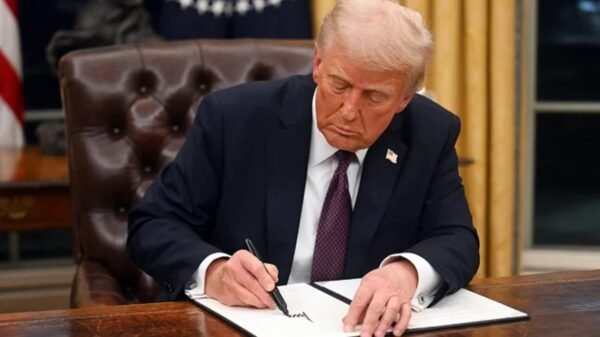Donald Trump ends birthright US Citizenship

Donald Trump signed an executive order on January 20, 2025, aimed at ending birthright citizenship in the United States, a policy that has been in place for over 150 years. This executive order is significant as it seeks to revoke the automatic citizenship granted to children born on U.S. soil to non-citizen parents, particularly affecting those whose parents are undocumented or hold temporary visas such as H-1B, student, or tourist visas.
Key Aspects of the Executive Order
Definition of Birthright Citizenship: Birthright citizenship is established by the 14th Amendment of the U.S. Constitution, which guarantees citizenship to all individuals born in the U.S., regardless of their parents’ immigration status. Trump’s order proposes that for a child to be granted citizenship, at least one parent must be a U.S. citizen, a legal permanent resident, or a member of the military.
Target Groups: The order specifically targets children born to:
Parents residing unlawfully in the U.S.
Parents holding temporary work or student visas.
Implementation Timeline: The changes are set to take effect within 30 days of the order’s signing.
Legal Challenges and Implications
The legality of Trump’s executive order is highly contested. Legal experts argue that altering the provisions of the 14th Amendment would require a constitutional amendment, a process that demands a two-thirds majority in Congress and ratification by three-fourths of the states. Thus far, no president has successfully ended birthright citizenship through an executive order.
Expected Legal Battles: Advocacy groups, including the American Civil Liberties Union (ACLU), have already initiated lawsuits against this directive, arguing that it contradicts established constitutional interpretations. The legal arguments will likely focus on whether children born in the U.S. can be denied citizenship based on their parents’ immigration status.
Potential Consequences: If enforced, this policy could leave millions of American-born children without citizenship documentation, impacting their access to essential services such as healthcare and education. Estimates suggest that around 4.7 million children live with at least one undocumented parent in the U.S.
Trump’s move to end birthright citizenship is part of a wider immigration policy overhaul aimed at reducing illegal immigration and addressing what he describes as “birth tourism,” where individuals travel to the U.S. specifically to give birth and secure citizenship for their children. This policy shift aligns with Trump’s longstanding campaign promises regarding immigration reform.
While Trump’s executive order marks a significant shift in U.S. immigration policy concerning birthright citizenship, its implementation faces substantial legal hurdles and widespread opposition from advocacy groups. The outcome of this initiative will have far-reaching implications for millions of families across the United States.
